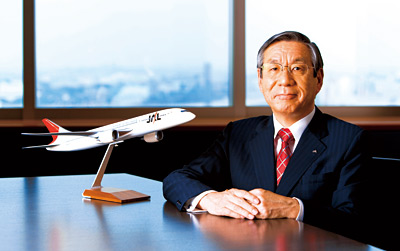Posted by geemiz | Posted in Trivias & Biographies | Posted on 23-01-2013
Tags: Inspiring Person
“If management is distant, up in the clouds, people just wait for orders…I want my people to think for themselves.” – Haruka Nishimatsu, Japan Airline CEO
 Personal Profile
Personal Profile
Name: Haruka Nishimatsu
Birth Date: 1948
Birth Place: Hamamatsu Shizuoka
Spouse:
Children:
Educational Background
College: Tokyo University – Economics
Graduate: Tokyo University of science
Professional Career
1972 – Served in Japan Airlines corporate planning department
1999 – Served as Director of Finance Department at JAL International
2003 – Served as Executive Officer of Finance & Investor Relations at Japan Airlines Corp.
April 2005 – Senior Vice President of Finance & Purchasing at JAL International and JAL Domestic
June 2005 – Senior Vice President of Finance & Purchasing at JAL Corporation
2005 – Member of the Board of Governors of The International Air Transport Association
2006 – Senior Vice President of Finance and Purchasing
2006 – President of Japan Airlines Corp. and JAL Group
2011 – Director of Japan Airlines Corp.
Greatest Leadership Qualities of Haruka Nishimatsu
– He knocked down all the walls in his office to allow his workers to feel as though they can approach him at any time and that they are on the same level.
– He rides the city bus to work everyday
– Buys his clothes from discount stores saying a boss who wears Armani puts himself at arm’s length from his people.
– Regularly pops onto planes to meet flight attendants and take part in duties such as sorting newspapers and preparing for meals so he can stay in touch with the front lines.
– When he was forced to cut salaries, he cut his own to a mere $90,000, which considering he runs the 10th largest airline in the world looks like minimum wage compared to his industry counterparts.
Mr. Haruka Nishimatsu is an inspiration to everyone and a role model especially to all leaders.


I admire his leadership but primary challenge would be that opening yourself up to your subordinates encourages total dependence and therefore, failing your people to skill up and innovate by themselves.